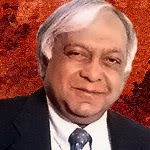Let’s say that 2% of the retirees had worked in general management cadre – Dy. GM and above – for average 5 years, and that 20,000 employees had retired over 40 years. Let’s also say that out of the possible 2000 man-years of knowledge and experience in general management, 50% is lost due to death or relocation or employment with competitors. That still leaves an asset of 1000 man-years locked up among the retirees. This one asset is ignored by almost all organizations. The successors feel that the predecessors ‘had their day’, and the predecessors feel that the successors are ‘messing up things’. Often, the successors have genuine or imagined grievances against the predecessors.
After becoming Director (HR) in IndianOil, I had taken out the dossier of my annual performance appraisals from the closely guarded corporate archive. I did have a doubt if this was quite ethical, because people who wrote the confidential appraisals would not have imagined that someday I would have access to these reports. But I had not forgotten the distress of unfair treatment in moving from Dy.GM to GM rank over two long years, and curiosity won.
The dossier had been managed efficiently: every appraisal from end of probation as a Management Trainee in 1972 to the last one as Executive Director in 1997 was neatly filed in chronological order. I took the dossier home and took my time in reading each one. The pleasant surprise was to find so many seniors so far away had written so many good things. The negative comments were from two seniors. One of them preached free and fearless debate but had always made it clear that my argumentative habit was not appreciated. The shock was the venom poured out by the other one, year after year. He was my ‘controlling officer’ for several tenures and always gave the impression of standing up for me. I still remember one comment: ‘The officer did not perform any useful work during this period’. That was for the time I was writing my MBA dissertation and simultaneously, building and managing a new integrated department. Some of the ideas from my dissertation and some of the innovations in the new department continue as standards in IndianOil, even in the Industry to this day! With that savage remark, he gave me a low ‘rating’ – the only time in twenty-six years. If confirmed, that rating would have irretrievably damaged my career progression and he, of course, wanted it that way. I still do not know why he was so vicious in the confidential appraisal while giving the opposite impression in all our interactions. Be that as it may, my next controlling officer with whom I was interacting for the first time, questioned the appraisal and ensured that the rating was revised to the top level; I knew nothing of this intervention till I read the dossier and he (the next controlling officer) had never told me anything about salvaging my career.
Coming back, I had a clean slate in ONGC as far as personal equations were concerned. I needed to ‘get under the skin’ of this complex entity. I also felt the need to supplement the competencies in the Board with accumulated knowledge and experience of the veterans, something like an oral history process. I decided to invite all surviving whole-time members of the erstwhile Commission and the ONGC Board to an annual retreat: the ONGC Conclave. The process would be to get the members of the Conclave to debate the corporate plans and problems presented by the serving Directors.
This did create serious discomfort across the generations but evolved as a fabulously successful Knowledge Management (KM) exercise!
Tuesday, December 22, 2009
Subscribe to:
Post Comments (Atom)




No comments:
Post a Comment